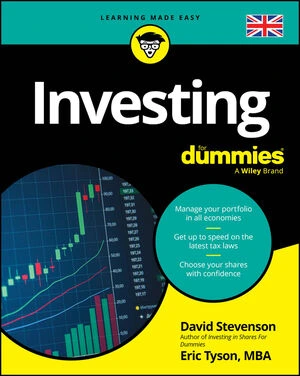In the 1960s, to the chagrin of some market soothsayers, academic scholars developed a theory called the efficient market hypothesis. This theory basically maintains the following logic: Lots of investors collect and analyze all sorts of information about companies and their securities. If investors think that a security, such as a stock, is overpriced, they sell it or don’t buy it.
Conversely, if many investors believe that a security is underpriced, they buy it or hold what they already own. Because of the competition among all these investors, the price that a security trades at generally reflects what many (supposedly informed) people think it’s worth.
Therefore, the efficient market theory implies that trading in and out of securities and the overall market in an attempt to be in the right stocks at the right time is a futile endeavor. Buying or selling a security because of “new” news is also fruitless because the stock price adjusts so quickly to this news that investors can’t profit by acting on it.
As Burton Malkiel so eloquently said in his classic book A Random Walk Down Wall Street, this theory “taken to its logical extreme … means that a blindfolded monkey throwing darts at a newspaper’s financial pages could select a portfolio that would do just as well as one carefully selected by the experts.” Malkiel added, “Financial analysts in pin-striped suits don’t like being compared with bare-assed apes.”Some money managers have beaten the market averages. In fact, beating the market over a year or three years isn’t difficult, but few can beat the market over a decade or more. Efficient market supporters argue that some of those who beat the markets, even over a ten-year period, do so because of luck.
Consider that if you flip a coin five times, on some occasions you get five consecutive heads. This coincidence actually happens, on average, once every 32 times you do five coin-flip sequences because of random luck, not skill. Consistently identifying in advance which coin flipper will get five consecutive heads isn’t possible.
Strict believers in the efficient market hypothesis say that it’s equally impossible to identify the best money managers in advance. Some money managers, such as those who manage mutual and exchange-traded funds, possess publicly available track records. Inspecting those track records (and understanding the level of risk taken for the achieved returns) and doing other common-sense things, such as investing in funds that have lower expenses, improve your odds of performing a bit better than the market.
Various investment markets differ in how efficient they are. Efficiency means that the current price of an investment accurately reflects its true value. Although the stock market is reasonably efficient, many consider the bond market to be even more efficient. The real estate market is less efficient because properties are unique, and sometimes less competition and access to information exist.
If you can locate a seller who really needs to sell, you may be able to buy property at a sizeable discount from what it’s really worth. Small business is also less efficient. Entrepreneurs with innovative ideas and approaches can sometimes earn enormous returns.





